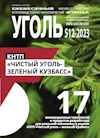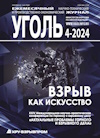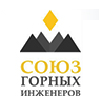
ECONOMIC OF MINING
Original Paper
UDC 338.45:622.3:332.012.2 © N.S. Bondarev, I.A. Ganieva,S.A. Kononova, 2022
ISSN 0041-5790 (Print) • ISSN 2412-8333 (Online) • Ugol’ – Russian Coal Journal, 2022, № S12, pp. 111-115
DOI: http://dx.doi.org/10.18796/0041-5790-2022-S12-111-115
Title
THE IMPACT OF THE EFFECT OF INSTITUTIONAL BLOCKING ON THE REGIONAL MANAGEMENT OF ECONOMIC DEVELOPMENT
Authors
Bondarev N.S.1, Ganieva I.A.2,Kononova S.A.1
1Kemerovo State University, Kemerovo, 650000, Russian Federation
2All-Russian Institute of Agrarian Problems and Informatics named after A.A. Nikonov, Moscow,107078, Russian Federation
Authors Information
Bondarev N.S., Doctor of Economic Sciences, Acting Head of the Department of Quality Management
Ganieva I.A., Doctor of Engineering Sciences, Chief Research Associate
KononovaS.A., Candidate of Economic Sciences, Deputy Director of the Institute of Digitalization
Abstract
The development of economic sectors, especially extractive industries, significantly depends on the economic situation, the influence of various internal and external factors that affect both positively and negatively, affecting institutions, institutional forms, and the institutional environment. Institutional forms of different nature act differently on the changes taking place, applying innovative approaches (progressive institutional forms) react faster to changes, adapt and exit with the least losses. The part of institutional forms that rely on the use of previous technologies (traditional institutional forms) can further exacerbate negative trends, thus manifesting the effect of institutional blocking. The purpose of the developed methodology is to identify such institutional forms for the presence of the effect of institutional blocking and to assess its impact on regional management of economic development. For this purpose, a step—by—step algorithm consisting of two blocks has been developed: the first one identifies traditional forms, the second one evaluates the manifestation of the effect of institutional blocking and its impact on regional economic development management. The first block is represented by five step-by-step stages: from the identification of impacts to the definition of traditional forms. The second block is represented by 4 stages: from the generation of response models to the assessment of the impact of institutional forms on regional governance. Further research on the subject is connected with the approbation of the methodology and evaluation of its results.
Keywords
institutions, regional governance, economic development, institutional blocking, progressive institutional forms, traditional institutional forms, phases of the economic cycle
References
1. Sukharev O.S. Theory of institutional and economic dysfunctions of the Russian school: a retrospective and perspective. Bulletin of Perm University. Series: Economics, 2021, Vol. 16, (1), pp. 19-38. DOI 10.17072/1994-9960-2021-1-19-38. (In Russ.).
2. Balatsky E.V. "Institutional trap": a scientific term and a beautiful metaphor. Journal of Institutional Research, 2020, Vol. 12, (3), pp. 24-41. DPI 10.17835/2076-6297.2020.12.3.024-041. (In Russ.).
3. Rudyakov V.A. The influence of the uncertainty factor on the development of the economic crisis in Russia. Science and Technology, 2016, Vol. 15, (2), pp. 164-170. (In Russ.).
4. Aksom H. Reconciliation of contradictory forecasts about the transience and permanence of managerial concepts in the theory of managerial fashion and new institutionalism. International Journal of Organizational Analysis, 2021. DOI 10.1108/IJOA-10-2020-2445.
5. Tatarkin A.I. The political economy of traditionalism - the basis of the Revival of Russia. Bulletin of the Udmurt University. Economics and Law Series, 2016, Vol. 26, (4), pp. 69-79. (In Russ.).
6. El-Khodiri M., Zhusupova Zh. On the issue of the institutional environment of corporate governance in developing and emerging markets. Eurasian Journal of Economic and Business Research, 2020, (3), pp. 56-68. DOI 10.47703/ejebs.v3i57.20.
7. Frolov D.P. Methodological institutionalism 2.0: from institutions to institutional configurations. Questions of Economics, 2016, (7), pp. 147-160. DOI 10.32609/0042-8736-2016-7-147-160. (In Russ.).
8. Bondarev N., Bondareva G., Ravochkin N. & Vindemut V. Formation of the Institute of Environmental Responsibility of coal industry enterprises. E3S Web Conference, 2019, (14), p. 04002. DOI 10.1051/e3sconf/201910504002.
9. Gladchenko M., Pinheiro R. Implementation of the triple helix model: separation of means and goals at the state level? Minerva, 2019, Vol. 57, (1). DOI 10.1007/s11024-018-9355-3 .
10. Kurpayanidi K.I. The institutional environment of small business: opportunities and limitations. Theoretical and applied sciences, 2021, (9), pp. 1-9. DOI 10.15863/TAS.2021.09.101.1.
11. Shastitko A.E. "Institutions matter" and "only (formal) institutions matter". Economic issues, 2019, (12), pp. 90-110. – DOI 10.32609/0042-8736-2019-12-90-110. (In Russ.).
12. Ozkaleli F.M. Legislative military powers in time: a historical institutionalist approach to the influence of the Turkish parliament on the formation of foreign policy. Journal of Legislative Studies, 2021. DOI 10.1080/13572334.2021.2001170.
Acknowledgements
The work was carried out within the framework of agreement No. 075-15-2022-1195 dated 30.09.2022, concluded between the Ministry of Science and Higher Education of the Russian Federation and the Federal budgetary educational institution of Higher Education "Kemerovo State University".
For citation
Bondarev N.S., Ganieva I.A. & Kononova S.A.The impact of the effect of institutional blocking on the regional management of economic development. Ugol’, 2022, (S12), pp. 111-115. (In Russ.). DOI: 10.18796/0041-5790-2022-S12-111-115.
Paper info
Received November 1, 2022
Reviewed November 15, 2022
Accepted November 30, 2022












